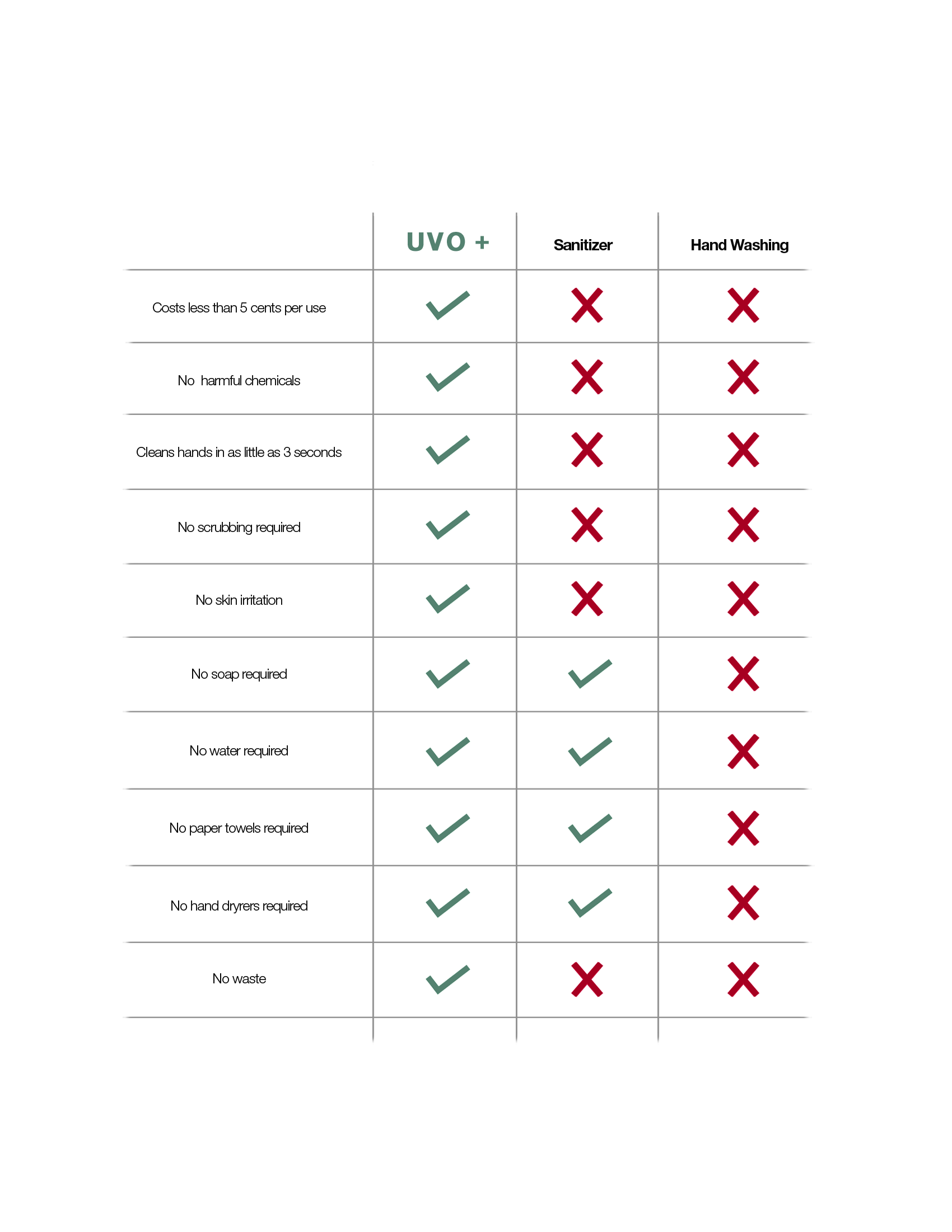
Clean Hands In Less Than One Second.
Waterless. Paperless. Sanitized.

70% of hospital acquired infections (HAIs) can be prevented with improved hand hygiene.
- CDC, NIH & WHO [22]

Poor Hand Hygiene Costs
Up to 80% of infectious diseases are transmitted due to dirty hands. [1]
1.7 million hospitalized patients acquire an HAI (hospital associated infection) annually. [20]
HAIs kill 1 out of every 200 patients admitted to a hospital. [20]
It costs a hospital approximately $13,793 per HAI case. [21]
It costs a hospital an estimated $33,986 per death.
HAIs account for $120 Billion in healthcare costs per year.

Why Hand Washing is Ineffective
The average person does not wash their hands sufficiently. This causes countless HAIs, leading to unnecessary illness, pain and suffering. Common failures include:
Inadequate time spent washing their hands.
Inadequate amount of water used.
Failure to use warm water.
Inadequate use of soap and/or lack of use at all.
Inadequate technique regarding cleaning around the thumb, underneath the fingernails and the backs of the hands.
Why Hand Sanitizer is Ineffective
Leading hand sanitizer brands don’t meet the Food and Drug Administration’s (FDA) standards even with perfect use. [10]
Leading hand sanitizers are ineffective against norovirus, clostridium and cryptosporidium. [11]
Frequent use of hand sanitizer often leads to dry, cracked, and irritated skin and creates vulnerability to bacteria, viruses and other contaminants. [12]
Regular use of hand sanitizer can reduce the skin’s natural oils and beneficial bacteria which can weaken the immune system over time. [13]
Hand sanitizer vapors can cause nausea/dizziness and should only be used in a well ventilated area. [14]
Hand sanitizers can be particularly dangerous for children. [15]
Electric hand dryers often cause a 27-fold increase in the amount of fecal bacteria in the air [19]

Medical professionals properly clean their hands only 50.3% of the time. [9]

Low Hand Hygiene Compliance Rates
Economic Consequences
Productivity losses linked to absenteeism cost employers $225.8 billion annually, or $1685 per employee. [3]
Businesses can reduce costs associated with health care claims and absenteeism by improving hand hygiene. [5]
Improved hand hygiene can reduce the spread of germs in an office by 74%. [5]
Improved hand hygiene can reduce absenteeism by 20-50%. [5]
On average, 58% of the working population call out sick 7.7 days per year. [4]
Ill employees who choose to attend work cost $150 billion to the U.S economy annually. [2]
The safest, fastest & most effective way to clean your hands.
References
https://nvsc.lrv.lt/en/news/nvsc-reminds-of-the-importance-to-wash-hands-often-and-properly
https://www.businessnewsdaily.com/11323-cost-of-coming-to-work-sick.html
National Center for Preparedness, Detection, and Control of Infectious Diseases (NCPDCID) and National Center for Zoonotic, Vector-Borne, and Enteric Diseases (NCZVED)
https://msutoday.msu.edu/news/2013/eww-only-5-percent-wash-hands-correctly
https://www.cdc.gov/handwashing/show-me-the-science-hand-sanitizer.html
https://www.fda.gov/consumers/consumer-updates/safely-using-hand-sanitizer
https://www.businesswaste.co.uk/ten-million-hand-sanitiser-bottles-heading-to-landfill/
https://www.tandfonline.com/doi/full/10.3111/13696998.2016.1145573











